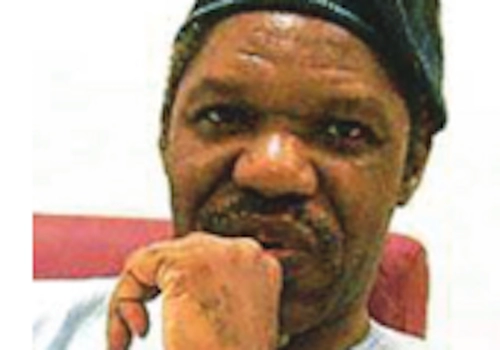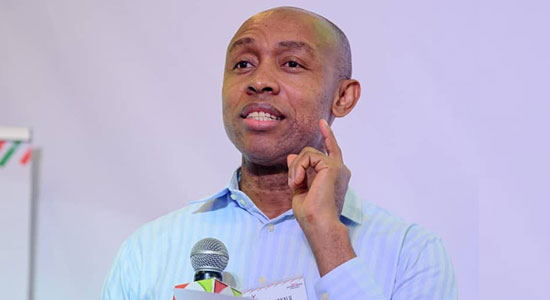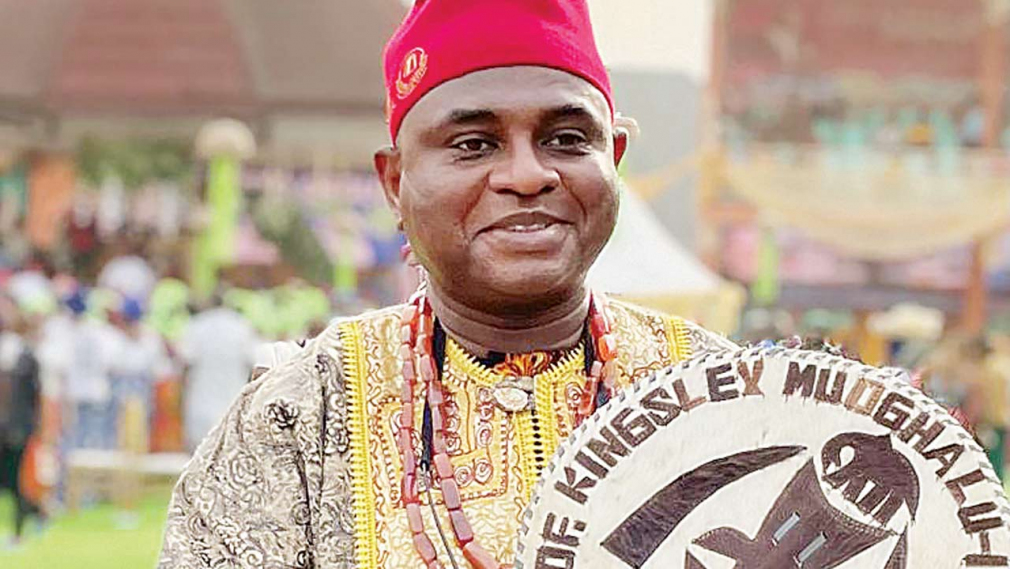The Judiciary- Making Or Breaking Nigeria

By Sola Akinyede
As the 2023 election cycle comes to a close, the battle for the various political offices will shift to the Tribunals and the courts. Ordinarily this should be a reason for relief. However following some recent decisions of the Supreme Court, what we have is a feeling of trepidation and a fear of the unknown. In 2020, the Supreme Court nullified the election of Hon. Emeka Ihedioha of the PDP who had been declared by INEC as the winner of the Imo state governorship election having polled 273,404 votes, but in what appeared to be a judicial coronation, Senator Hope Uzodinma who came fourth with 96,458 votes was installed. Overruling the decisions of the Tribunal and the Court of Appeal, it held that elections took place in 388 polling units based on results tendered by a single policeman who was never at those polling units. That decision resulted in the total number of votes cast exceeding the total number of accredited voters by over 100,000 votes -an electoral impossibility and illegality that the Supreme Court has not been able to explain up till today. Neither has that court been able to explain why and how 100,000 people who were not accredited were allowed to vote. The court has also been unable to tell Nigerians where and in which polling units and local government areas the 100,000 unaccredited voters came from in order to determine(1) which votes to void for overvoting as prescribed by section 51 of the Electoral Act (2) whether the candidates polled one-quarter of the votes cast in at least two-thirds of Imo’s 27 local government areas as required by Section 179(1)b of our Constitution. Realising that its decision in Imo was an egregious mistake, but unwilling to face its fallibility, the court instead balanced the political equation violating the will of the Bayelsa people who voted for APC’s David Lyon by nullifying his election and awarding the state to PDP on the technical ground that as his running mate( not himself) presented a forged certificate, being a joint ticket, Lyon’s election was ‘vitiated’ despite the clear provisions of Section 177(c) of our Constitution and the Supreme Court’s previous decisions that confirm that an election is a vote for a party rather than an individual.
This year the court yet again arrived at another decision that confounded and dumbfounded many Nigerians -that the Senate President Senator Ahmad Lawan whom everybody knows did not contest the Senate Primary for Yobe North Senatorial District was APC’s duly nominated candidate . This time, it again overruled the Federal High Court and the Court of Appeal basing its decision on yet another technicality. The reason advanced by the Supreme Court had nothing to do with the merits of the case but related to the method by which the legal action was commenced -an argument as to the form rather than the substance or justice of the case. This technical argument as to form was the gold standard in the courts more than 800 years ago in 13th century England until King Henry III who was not a lawyer realising the perversity, the injustice and absurdity of technicalities (as we have in Lawan’s case) overruled the English judges resulting in the birth of Equity and the Court of Chancery. The two cases mentioned above have greatly undermined the credibility, respect and confidence that the Nigerian people have in the judiciary. In Imo, Senator Hope Uzodinma is derisorily referred to as ‘Supreme Court Governor’ .
This is not surprising. In the 2018 United States of America Supreme Court case of Rosales v Morales, the American Supreme Court Justice, Justice Sonia Sotomayor stated ‘The public reputation of the judicial system hangs on the perceived adherence to the principles of justice. An unjust court is considered an illegitimate court.’ How do you describe a court that rules that a person who never participated in the primary of his political party is the duly nominated candidate of that party? The attitude of the Supreme Court is obviously different from that of the United States Supreme Court as can be gleaned from the statement of the of one of the Justices of the Nigerian Supreme Court who stated in an imperious manner in the Bayelsa case ‘No force on earth can force this court to change its decision’. Apart from the fact that the court was simply being asked to correct what was obviously a grave mistake, is it about force or power or about justice? And even if it is about power, that power should be used for the benefit of the Nigerian people who voted and not against them.
Imo state has become a theatre of war since the decision of the Supreme Court and one can clearly see in this year’s presidential and governorship elections a governor who didn’t win his election struggling to turn his minority government into a majority resulting in all sorts of manipulations of the electoral process. But more importantly, many lives have been lost as a result of the political instability created by the judgement.
This public perception of its reputation is what the Supreme Court will be bringing into the 2023 presidential and governorship elections cases. That it about power, legal and judicial brinkmanship, technicalities and gymnastics and the readiness to deploy that power for and kowtow to the rich and powerful.
The danger is that today, Nigeria is at a tipping point. While the deployment of technicalities might benefit a few, it will be a mistake of catastrophic proportions to attempt them in respect of the 2023 elections.
For the past eight years, Nigerians have been in the throes of three existential crises. An existential crisis with regard to our territorial, political and structural integrity and the security of our citizens in every part of the country particularly in the North West and the North East where terrorism, violent insurgency and banditry have taken root. Existential crisis with regard to our national cohesion following the mismanagement of our diversity by the Buhari administration resulting in separatist tendencies, ethno-religious polarisation, farmers-herders clashes in the North central states. Existential crisis with regard to our economy. Nigeria has the highest number of extremely poor people in the world.(87.2 million poor souls) more than India with a population of 1.34 billion people. Unemployment rate is 35% while youth unemployment is over 50%. A country that is essentially bankrupt, since 2020 we have been spending 98% of our revenue just to service our debts, the World Bank projecting that the 98% will rise to 160% in 4 years. The current administration in its first five years borrowed $21.7 billion – more than Presidents Obasanjo, Yar’Adua and Jonathan combined borrowed in 16 years. The country has never in its history experienced a convergence of these three existential crises. These are what 63% to 70% or more of Nigerians voted against. What has been saving the country from a cataclysmic explosion or a paroxysmal upheaval of the restive and angry youths and increased subnational agitations is the hope in the 2023 elections. To make matters worse, these elections have been characterised by unprecedented falsification and manipulation of results, dangerous ethnically driven voter-intimidation where voters of south east origin and other ethnicities were physically intimidated, prevented from voting in their own country and had the doors of polling stations locked against them. In addition, there was obvious evidence of voter suppression with INEC probably in collusion with the candidates of the ruling party and in some cases the opposition turning up very late or not turning up at all in opposition strongholds. The judiciary must not make the mistake of deploying the electoral impossibility and illegality formula of Imo or the fictional fabrication and technicality of the Lawan formula in deciding the 2023 elections. After the #EndSars protests that rocked Lagos and other cities all over the country virtually bringing the country to its knees, the youths were asked to convert their #EndSars energy into electoral energy. They did. Persons who claim to be indigenes in the ‘Centre of Excellence’ decided to deploy all manner of malpractices including the primitive ‘Oro’ cult ritual curfew in which women and non indigenes are threatened with beheading should they venture out. If everybody did his own version of ‘Oro’ in other parts of the country threatening non indigenes and those they suspect would not vote for them, would there be a Nigeria? The only way to prevent a reconversion of the youths’ electoral energy into a negative and destructive energy that will surpass #EndSars is for the judiciary to transparently address each and every one of the issues in the badly flawed elections. All those places that constituted the stronghold of the opposition where elections did not take place or voters were frustrated by the contrived late arrival of voting materials should have supplementary elections ordered. All votes reduced and inflated must have the correct figures restored. The judiciary should not dismiss these matters under the umbrage of substantial compliance for it is possible that these malpractices will affect the issue of polling the required 25% of the votes cast in two-thirds of the states. Nigeria needs to heal from the 2023 elections. A man who has been prevented from voting in his own country as a result of his ethnicity will not heal if the judiciary throws the Electoral Act on substantial compliance at him. For those who think that the answer is a government of national unity, the simple answer is you cannot come to my house to steal my food and then invite me to your house to eat it with you.
Most importantly, the brazenness of the rigging of elections, falsification of election results, violence, ballot box-snatching, voter intimidation and voter suppression are getting worse with each election cycle and have become so bad that they threaten our cohesion and the foundation of our country. The reason why this is so is because there are no consequences. The security agencies ignore or even connive with the perpetrators. The man who was seen in a video threatening voters of South East origin in Lagos not to dare come near the polling units if they were not going to vote for APC had a policeman with him. Three weeks after that contravention of the Electoral Act, the police claims that they are still ‘investigating’. With the failure of the security agencies , the acts of impunity by politicians get worse because the judiciary citing substantial compliance ignores them when victims of electoral malpractices come to court to complain. Only one person can win an election, and it is not being suggested that any particular person or political party should be favoured. But the judiciary has a duty to ensure that the process is free and fair and that the conduct of elections does not constitute a threat to the existence of the country. If the incendiary consequences of the Imo judgement are replicated in various parts of the country in 2023, one doubts if the security agencies would be able to contain them.
The 2022 Presidential primaries were mismanaged by the political class who allowed the process to be heavily monetised by the two hegemonists and oligarchs that had the most money to run away with their parties’ tickets. The 2023 elections were mismanaged and compromised by INEC and by the Executive as exemplified by a governor of the ruling party in one of the North Central States who on the eve of the presidential election, dug trenches, destroying Federal government roads in order to incapacitate his opponents during the elections and whose local government chairman was seen in a video accompanied by a policeman in what was obviously a general operation storming polling stations to tear up selected ballot papers presumably of the opposing political parties.
The redress for all these acts of mismanagement and impunity lies with the judiciary. If the judiciary itself mismanages the process for redress, the consequences for the country could be catastrophic.
•Senator Sola Akinyede a constitutional lawyer was the Chairman Senate Committtee on Financial Crimes and Anti-Corruption from 2007 to 2011
NOTE: This article was originally published by ThisDay on 22/03/2023



